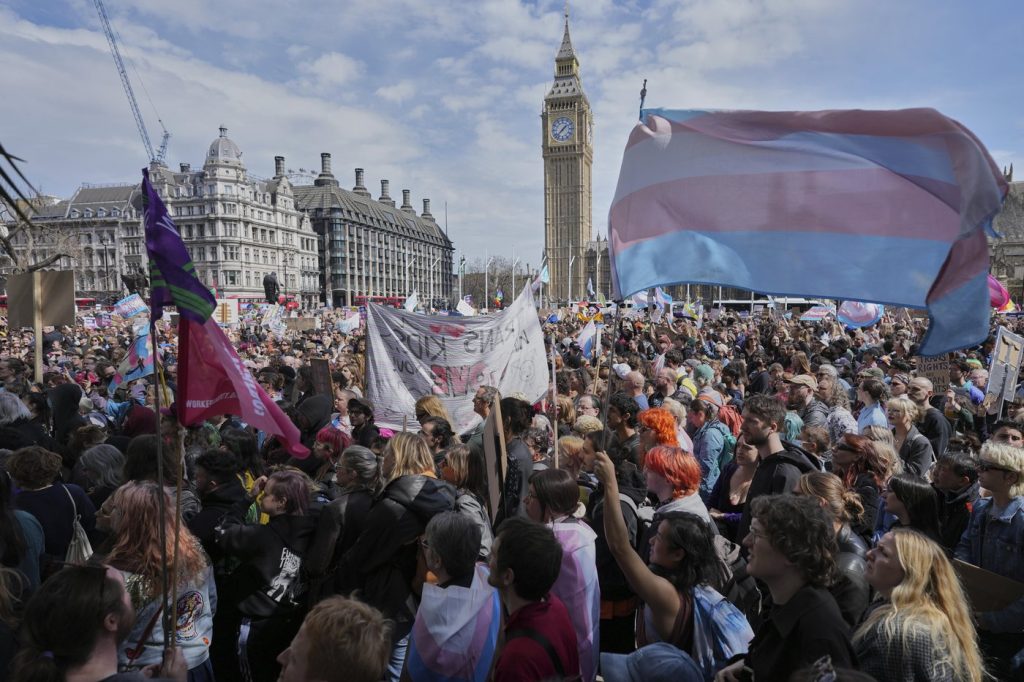LONDON (AP) — On a Saturday following a contentious ruling by the U.K. Supreme Court, thousands of protesters advocating for transgender rights assembled in central London. The court's decision defined a woman strictly as someone born biologically female, effectively excluding transgender women from that legal classification. This landmark ruling has generated significant concern within transgender rights groups, prompting calls for immediate action through what was called an "emergency demonstration" in Parliament Square.
Activists at the protest expressed their demands for "trans liberation" and "trans rights now," with participants waving flags and displaying banners. The atmosphere was charged with a sense of urgency as many attendees articulated their fears regarding the implications of the ruling for the rights of transgender people. Although the Supreme Court maintained that existing discrimination protections still apply to transgender individuals, leaders from the Equality and Human Rights Commission indicated that this ruling could lead to transgender women being excluded from public spaces such as women's restrooms, hospital wards, and sports teams.
Sophie Gibbs, a 19-year-old transgender woman, voiced her disappointment, stating, "It's a terrifying time to have your rights taken away from you. I was disappointed to think that we could live in a society that seems so progressive now but is willing to make such a dangerous and harmful ruling." This sentiment was echoed in the streets as many activists expressed concerns that the ruling might set a precedent for further limitations on transgender rights.
The Supreme Court's ruling stemmed from a law enacted by the Scottish Parliament in 2018, which mandated that at least 50% of women on boards of Scottish public bodies be biologically female. Transgender women who held gender recognition certificates were originally included in this quota. However, the court declared that employing such certificates to define someone’s sex would conflict with the definitions of man and woman. Consequently, the court interpreted the anti-discrimination provisions of the 2010 Equality Act as strictly referring to biological sex.
Following the ruling, Scotland's First Minister John Swinney acknowledged the "hurt and anguish" felt by the trans community, while affirming that the ruling must be adhered to within legal frameworks. This concession indicates the ongoing tension between ensuring legal compliance and addressing the social and psychological ramifications for transgender individuals.
Among the crowd, many voiced apprehensions that this ruling could open the door to additional legal decisions that might further restrict transgender rights. Zuleha Oshodi, a 29-year-old activist, remarked, "It’s a Pandora’s box situation where I just think we allow certain things and then we've essentially opened up the door to allow way more than we ever thought could be accepted or pushed through." Such reflections highlight the anxieties surrounding the broader implications of the ruling on societal attitudes towards transgender rights and protections.
In light of the approximately 116,000 individuals identifying as transgender within the U.K.’s population of around 66 million, the ruling has ignited passionate debates about the future of transgender rights. While government representatives claimed that the unanimous decision by the five judges brought "clarity and confidence" for women and service providers, opponents argue that it undermines the very framework of rights and protections meant to support marginalized groups.










